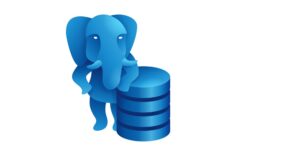
EDB Says It Tops Oracle, Other Databases in Benchmarks

EDB Postgres AI, the latest PostgreSQL-based database from EnterpriseDB (EDB), outperformed four other databases, including Oracle, SQL Server, MongoDB, and MySQL, on a pair of benchmark tests that span SQL and NoSQL workloads, the vendor announced today.
EDB commissioned McKnight Consulting Group to run a pair of benchmark tests to measure the relative performance of EDB Postgres AI against relational and non-relational databases. McKnight set up a TPC-C-like test to compare the transaction processing prowess of EDB Postgres AI against Oracle and Microsoft SQL Server, while it set up a JSON processing test to compare the multi-modal database against MongoDB and MySQL, which is controlled by Oracle and can also process JSON documents.
On the new orders per minute (NOPM) transactional test, McKnight measured EDB Postgres AI hitting a peak throughput of about 987,000 NOPM compared to about 844,000 for Oracle and about 759,000 for SQL Server. The tests were performed on identical AWS environments: ixi8xlarge instances running in US East 1, which cost $24,055 per year to run.
The price-per-performance comparisons were starker. According to McKnight, EDB Postgres AI was able to achieve an NOPM cost of $0.21 per unit compared to Oracle’s $1.58 and SQL Server’s $1.26. The differences are due to the higher cost of the Oracle ($47,500 per unit) and Microsoft ($15,123 per unit) software environments compared to EDB ($2,780 per unit), as well as higher support costs ($10,450 per unit for Oracle and $3,327 per unit for Microsoft versus zero for EDB).
McKnight notes that, while the NOMP benchmark was set up in accordance with TPC-C standards, it was not an official TPC-C benchmark test. To serve as the database driver, McKnight used HammerDB, which is “a widely used and accepted implementation of the TPC-C test,” the company says.
An entirely different test was used for the JSON workload, but the same AWS instances were used. For the JSON test, McKnight used PG NoSQL Benchmark, which is a benchmark tool created by EDB to test PostgreSQL and MongoDB databases. McKnight modified the syntax of the benchmark to include MySQL, which also is capable of processing JSON data.
The test measured how quickly each database could perform batch loads of JSON documents, INSERT the data into the database, and then perform a SELECT query on the data. The batches ranged from 5 million documents (13GB) up to 100 million documents (266GB). The test simulates the type of database work that would be performed as part of a retrieval augmented generation (RAG) pipeline for a generative AI application.
EDB Postgres AI beat the other two databases across all three JSON tests. For bulk loads, EDB was 34% faster than MongoDB and 63% faster than MySQL. For database INSERTS, EDB was 4 times faster than MySQL and 150 times faster than MongoDB. For the SELECT query, EDB was on average almost 3 times faster than MySQL and more than 5 times faster than MongoDB. More details of the test setup and results can be found in McKnights’ report here.
The tests pit the world’s five most popular databases against each other. While Oracle, MySQL, and SQL Server continue to be the most popular relational databases, PostgreSQL has emerged to threaten them for dominance, according to DB-Engines ranking. MongoDB has been the world’s most popular NoSQL database for well over a decade.
Related Items:
Microsoft Open Sources Code Behind PostgreSQL-Based MongoDB Clone
Postgres17 Brings Improvements to JSON, Backup, And More
Postgres Rolls Into 2024 with Massive Momentum. Can It Keep It Up?





























